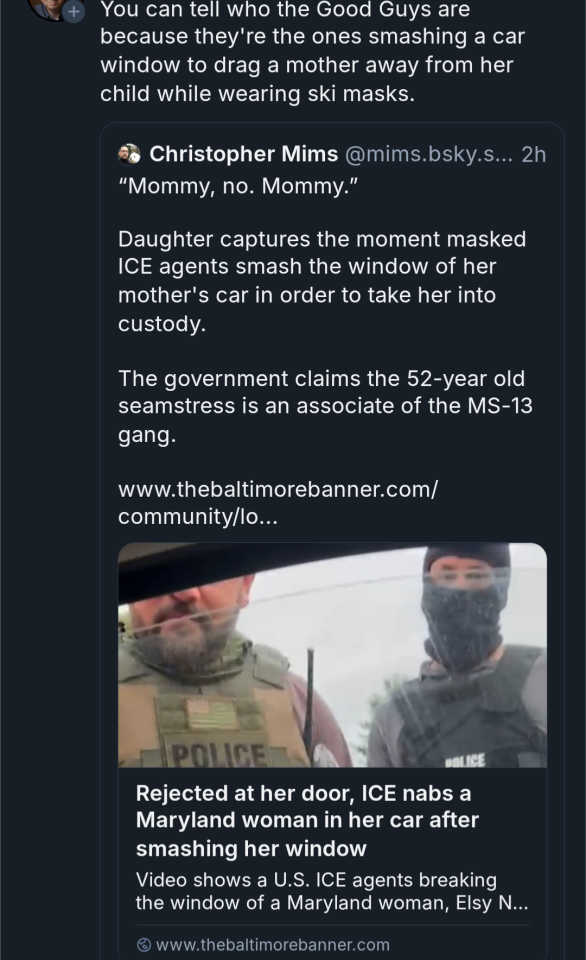If you're in a tiny minority or a minority within a minority or you have different experiences from intersectionality, I'm on your side. I want to hear everything, absolutely everything about what it's like. I'm here to listen and to tell ignorant people exactly why they're full of shit.Radfems and other bigots can rot in the hell they make for themselves. If you distrust all men...Intersex issues deserve their turn in the spotlight. Intersex teens are forced to take hormones they don't want or need. Genital mutilation is legal in the US and practiced regularly on intersex infants and children. These surgeries can be done in adulthood with the same rate of success. They deserve a chance to grow up and decide for themselves. Stop fearing that they're going to be traumatized by having traits that aren't discussed in sex ed. Stop the publically sanctioned medical abuse!Immigration status and homelessness is bullshit made up by territorial assholes. Sleep on that unused land! Take a share of food! Have friends! Be safe and warm! Participate in ways that work for you!All disabilities including stigmatized mental illnesses like BPD, NPD, ASPD, DID, and schizospec deserve compassion. Narc abuse is stigmatizing language. Just call it abuse!The trans infighting is stupid. Every trans person experiences mysogyny. Stop claiming that other subgroups aren't oppressed!Addiction and overeating are just unhealthy coping skills and they don't deserve to be demonized while others get a pass. You are not wrong or bad for relying on them!I'm a gen X autistic old fogey coming back to tumblr ten years later and it all works differently. Don't reblog if you're who? Still figuring it all out... Cut me some slack young-uns, I'm old enough to be your grandparent!
Last active 60 minutes ago
Don't wanna be here? Send us removal request.
Note
i'm in an almost 8 year relationship with a cis straight man. came out as a trans man last year and tried to break up with him bc i knew we just weren't going to be compatible. he begged me for a year to "get used to the idea" of dating a man. almost a year later, i share that i finally scheduled my intake appointments for testosterone. i'm literally getting my blood drawn on wednesday. he just asked me if i would consider delaying starting hrt so he can "start getting things in order" in case we don't work out.
i'm absolutely crushed. i asked him if he had a timeline he could give me because it wasn't fair for me to wait until he's ready and he couldn't give me one. the entire time, he just kept saying "i feel so guilty for asking this" but asked anyway.
i told him i'd need to think about it, but the answer is no. me delaying my transition wouldn't do anything but continue to let him live in denial and make me miserable. i'm just so fucking upset about this. i know he was taking it hard but i thought he would ultimately support me. guess not
He's had since last year to come to terms with you actually being a man and wanting to be on T. It's time for him to nut up or shut up. Either he accepts you for you being a trans man, or you toss him to the curb. Sorry to say it, but that's what has to happen in order for you to be your most authentic self.
25 notes
·
View notes
Text
say it with me kids. just cause i experience nonhumanism, alterhumanity, otherkin feelings, physical and non physical therian feelings, gender identity a certain way doesn’t mean someone else does. my experiences do not define the labels others use to define themselves. i can freely and happily explore my identity whatever that entails no matter how many times it changes. it is okay if i explore something and it turns out it isn’t for me. gender sexuality and species identities cannot be limited by rules and boxes. no you are not faking it if you truly and deeply feel a certain way. i don’t have to seek validation from others to confirm my feelings and my experiences. i don’t have to be like everyone else to feel validated.
277 notes
·
View notes
Text
and i was so young when i behaved 25 yet now i find i have grown into a tall child

62 notes
·
View notes
Text
You will be in so much pain that it's hard to watch TV and drs will be like nah just take otc pain relievers until they damage your liver and kidneys, writing prescriptions is scawy.
12 notes
·
View notes
Text
Stop just asking "is it normal?" and start asking "is it harming anyone?" Lots of harmful things are normalized in this society and lots of things considered weird or rare are completely harmless. Whether something is considered normal or common shouldn't be the deciding factor in whether it's okay
11K notes
·
View notes
Text
For me this isn't even about empathy or sympathy (though there's value in those as well), it is just straight-up a human rights thing. Once you have decided that there is *any* category of human that can be treated as less-than-human you've said that humanity is conditional, and so are the rights that come with it. You've already lost, you've granted the fascists their point because *you agree with them* that some people don't deserve to be treated like humans.
14K notes
·
View notes
Text
51K notes
·
View notes
Text
Be ungovernable help your fellow human beings and yell la migra while running. The racist will continue to chase you and the people in actual danger will have the opportunity to get out of harms way.
2K notes
·
View notes
Text
"right to life" is the name of an anti-choice group in Texas that introduced some of the harshest anti-abortion laws in the country. The idea that fetuses have a human "right to life" is literally killing people as they are denied medical care out of the fear that terminating their pregnancies might make doctors complicit in the death of a fetus.
I cannot begin to explain how much I am not fucking around about abortion.
3K notes
·
View notes
Text
Many intersex adults who underwent childhood medical interventions may have experienced repeated genital examinations throughout childhood and into adulthood, which may increase their medical mistrust. Many intersex adults delay or avoid seeking mental health support due to medical mistrust. This mistrust and avoidance of care is exacerbated by the incorrect attribution by some health care workers of mental health conditions to intersex variation itself rather than to stigma and trauma from previous medical interventions, further underscoring the benefit of affirming, trained mental health providers in mitigating self-harm and suicide risk. To combat medical mistrust, training for the next generation of health care professionals must account for both the medical and interpersonal needs of intersex patients, especially young children. When intersex individuals receive appropriate and affirming social support and mental health care, they can thrive.

from Advancing Health Equity for Intersex Individuals, a paper by the U.S. Department of Health and the Human Services Office of the Assistant Secretary for Health that was censored by the trump administration
134 notes
·
View notes









